marching song
After losing his family in the Holocaust, David Sarid turned the school in Tiberias into his home and the enterprise of his life
At the age of 13, David's studies were interrupted because of the war, in which he lost his family and survived the inferno of the death camps in Poland.
But his thirst for knowledge did not pass, and over the years he not only completed his studies, but became a beloved educator who accompanied generations of students in Tiberias.
"Lighted a fire in many hearts and taught to dream and fulfill"
Eli Ashkenazi
01/01/2022
Saturday, 01 January 2022, 16:22
Share on Facebook
Share on WhatsApp
Share on Twitter
Share on Email
Share on general
Comments
Comments
"Teacher David" or "Principal Rabbi David", this is how David Sarid's students and their parents turned to the teacher and principal of the H. Elementary-State School in Shikun III in Tiberias. Sarid, who has accompanied the families since immigrating to Israel and living in a transit camp in Tiberias, knew every child and every family and became a significant figure in their lives even when they grew up. "He lit a fire in the hearts of many and can be taught to dream and realize, well everything looked black and hopeless," he said Faraggi Sun, a former student, who later became director of the Municipality of Tiberias and Acre.
School was his second home, and usually applies a remnant of life " Two weeks ago, Sarid passed away, but his memory left a mark on the hearts of many.
He was born on Passover 1928 in the town of Maidan in the Carpathian Mountains. In those days, the town was part of Czechoslovakia. And two daughters and made a meager living;The father was a sales agent who roamed between villages and towns and the mother ran a tavern at the family home.
David the boy attended a "room" and a public school.
From an early age he excelled in studies and when he reached the age of bar mitzvah, the school in the town no longer provided for his needs.
The parents decided that he should study in a high-level yeshiva and sent him to the town of Sardani, a hundred kilometers from their home.
The last picture he remembered of happy days with his whole family was from his bar mitzvah on Passover 1941. "At Isro Hag I went up to the Torah. I remember my mother standing with the help of women and being pleased with her 'jewel'," he later said.
More on Walla!
The women's rights fighter who did not let the disability stop her from a public mission
To the full article
David Sarid (Photo: Official Website, Gil Eliyahu)
Shortly afterwards, his parents, along with most of the town's Jewish community, were expelled from their homes by Hungarian police. The parents and their children managed to return to the town area, were caught and shot to death in the Carpathian Gorges. After a while, David learned that of his entire family, only his brother, Israel Leib, who was two and a half years older than him, who had studied at a yeshiva in another town, survived.
At the age of 13, David did not yet know what happened to his family. However, without financial help from home, he had to take care of his livelihood, and he collected food from everything nearby, and sometimes won meals at family homes in the Jewish community.
In January 1942 he managed to connect with his brother who lived in the town of Shurani, and the two took care of each other. In March 1944, Leib went to Maidan, after learning that their grandmother was dead and asked to sit on her seven and go to the grave. But just as he arrived there, soldiers from the Nazi German army entered the town, which was already in Hungarian territory at the time, and imprisoned him.
David, who was left alone again, was adopted by the family of Rabbi Meir Leib Fry, the town's yeshiva director.
Together with the rabbi he was later loaded onto the freight car, which took them to the Birkenau death camp.
He later described the horrific journey, in which they were crammed into the caravan and the end of the journey: "After three days the caravan door opened and beams of light hit us when the doors opened. The capo men stood and shouted and SS soldiers stood nearby with barking dogs. , He said.
He recounted how the rabbi, whose glasses were taken from him, was supported on his arm and found it difficult to walk.
"The German's huge toe separated us. The rabbi groped his way in a few steps and disappeared from my sight forever," he wrote in his book "From Auschwitz to Tiberias and Back."
David Sarid (Photo: Official Website, Gil Eliyahu)
He spent a whole year in the death and labor camps in Birkenau, Mauthausen and Gusen 2, and managed to survive the inferno. "He said there was not a single unusual incident or heroic act that left him alive," said his daughter, Deborah. "He described it as a series of miracles and providence that led to him being rescued at virtually every moment," she added.
In early May 1945 the camp was liberated and David became a free man. Now, weak and lonely, he set out on a quest to find his family. In Budapest he found Leib, his brother. For two years, David lived in a DP camp in Germany, where he became active in the Ha - Shomer ha - Tsa'ir youth movement. The connection with the apostles who came from the Land of Israel strengthened his longing for it.
Determined to catch up on the years of schooling he lost, he read every book he could find on general and Jewish history, philosophy and modern Jewish literature. He began to stand out as a leader and as an educator, and in 1949 he was offered a trip to Norway and to be on the team of counselors in a children's village, donated by the Norwegian government to the Jewish Agency. Children and teenagers from Jewish families from Morocco and Tunisia were in the village before immigrating to Israel.
Guides from Israel also came to the village, including the Lebanese girl Ben-Kiki, from Palmach and a member of the Abulafia family, a rooted Tiberian family. David and Lebanon became a couple. "When a group of sabras arrived - instructors from the country - I was very excited.
When I realized that a beautiful Sabra girl was standing close to me, with a unique Hebrew name - Lebanon - who even dreams in Hebrew, and everything she whispers, she whispers in Hebrew, I felt that the Messiah had come.
I immediately fell in love with her.
I was in love not remained one-sided, I soon discovered that Lebanon fell in love with me ", describes in his book.
Meanwhile, Lebanon told that she could not believe that the Holocaust survivors, at the Hebrew University spoke flawless and knowledge ons about the land of Israel. Even the story of Rabbi Meir, who was buried in the city Its, well known.
"She had a hard time believing that this was a Holocaust survivor," Sarid said with his Lebanese wife (Photo: courtesy of the family)
After 14 months of work in the youth camp, the two decided to get married. In those days it was an extraordinary connection - a Sabra girl from a privileged and economically established Spanish family and an exiled refugee, a Holocaust survivor from Czechoslovakia, with no family, no pedigree and no penny in his pocket.
Before the wedding split for nearly a year; Lebanon moved to run a camp for immigrant children in France, while in David's heart the decision to immigrate to Israel and enlist in the IDF and serve as a soldier was made. .
wedding day did not pass smoothly: the wedding ceremony late uncle after taking part in a battle against Syrian troops, over control of the enclave Hamat Gader. among seven soldiers killed. At the end of that year he was discharged from regular service.
The couple had a daughter, Deborah, named after David's mother.
Both spouses began working as teachers in the large transit camp then established in Tiberias, in parallel with his undergraduate and graduate studies at the University.
"I tried to complete and achieve what I had lost educationally," he explained of his thirst for studies.
His work for a master's degree dealt with changes in the Jewish community in Tiberias during the first and second period of aliyah.
He became an authority in the history of Tiberias and did much research into the beginnings of medicine in the city.
To investigate the establishment of the Scottish Hospital in Tiberias, he even traveled on one of his sabbatical years to Edinburgh, Scotland.
Sarid was also one of the founders of the Tiberias Research Institute, which previously operated in the city.
Survived the inferno thanks to a series of miracles.
A relic while traveling to Auschwitz as a witness (Photo: courtesy of the family)
In 1962, the family went on a mission to Panama, where David and Lebanon taught at the Jewish school. After returning to Tiberias in 1965, David was appointed principal of the State Elementary School. The school was housed in Housing C, which was built a few years earlier, and most of its residents were families who had immigrated from northern Iraq.
"It was a community of Kurdistan people, whom I taught until I knew it well for all its ways and customs. I was so intrigued by them that in every meeting with the chairman of the parents' committee he would pat me on the shoulder and say to me, 'You are a Kurd!' David said.
Sarid soon became a significant figure for the residents of the neighborhood. Aaron Yitzhak, chairman of the Arbel community committee, who attended the school, said that "David was for the students and their parents far beyond the teacher and principal, he was a kind of spiritual father. "He was an adored figure and we had reverence for him. He had a special status in Housing C."
Isaac emphasized that the reverence did not stem from fear but from great appreciation.
"David had a huge knowledge that he took care to pass on to us, in addition he also had a special approach to the students; for example - in the school there were no punishments. A student who made problems, and there were many, was sent to the principal's room. David would take the student "The book. He would explain and teach about plants, in the winter he would teach us about edible mushrooms. He was an expert on mushrooms since his childhood in the Holocaust, when he collected food."
Yitzhak further said that Sarid taught his students to play chess and would hold simultaneous games in front of forty students.
Sarid was one of the first Holocaust survivors to accompany students to Poland.
The March of Life in 2019 (Photo: Yoav Itiel)
Going out into nature instead of punishments
Deborah, Sarid's daughter, who works as an educational counselor, explained that her father "saw chess learning as a good way to develop skills, thinking methods and a way to relax and create a circle of belonging for students." Faraji Shemesh said that following that childhood experience, as CEO of the Tiberias Municipality, he initiated the introduction of chess into the city's schools as a subject.
Gil Eliyahu, a press photographer who studied at the school, said that he was sent to the principal's room more than once. I still remember the first book, it was a book by Janusz Korczak, and so I read many more books with him. We also went out with him a lot to nature and he connected us to the area, and when there was an annual trip he did not give up any student, even though the teachers feared that the problematic students would go on a trip. David was a significant figure in my life. "
Many of his students made sure to keep in touch with him throughout the years, would celebrate his birthdays with him and come to his home on Holocaust Day.He in turn followed the successes of his adult students and was proud of them.
As someone who experienced the events of the Holocaust, Sarid repressed the memories for many years.
He even refused to receive compensation for his past suffering.
His daughter says that the capture of Adolf Eichmann and the trial held for him, caused her father to start talking and telling about what he went through as a teenager.
"As soon as I started hearing the sentence, the tears started to flow. By themselves they flowed, out of control. It was the first time I cried since the war, meaning it was almost sixteen years. It was not a hysterical cry, just tears, and I felt like something inside me broke out," he later said. .
Even the story of Rabbi Meir Baal Hanes he knew well.
Tomb site in Tiberias (Photo: ShutterStock)
In 1987, David completed 22 years of school management and retired. He decided that he should keep what he defined as "the commandment" and the Haggadah for your son, "and was one of the first Holocaust survivors to accompany Israeli youth trips to Poland. The first time he went out with a delegation of teenagers he had such a shaky experience that he had a heart attack and was hospitalized in Poland. Nevertheless, he did not give up, and afterwards went on ten more journeys.
Journalist and historian Tom Segev accompanies one of those delegations and in his book "The Seventh Million" quoted Sarid's words to the boys: "He told them that the heritage of the Holocaust commands them to remember sadly and live happily." Segev also noted that "Sarid repeatedly mentioned the murder of the gypsies: during his visit to Birkenau he led the students to a small stone plaque commemorating them. During his imprisonment in the camp he witnessed their murder. He told the students that Jews are commanded not to forget them. The Jews. "
Segev also wrote that when the question of revenge came up for discussion, "David Sarid told the students that there is no revenge: do not fill their hearts with hatred, go back and memorize for them, lest there be room for love in them."
Sarid supported the many volunteer projects to which she was dedicated to Lebanon, his wife, and as part of her activities for the absorption of her, he also joined her on missions in Moldova and Ukraine, where the two taught in Hebrew studios.
David Levanona, his wife, was awarded the Beloved of the City of Tiberias.
The two were as a team dedicated entirely to the fields of education, society and heritage in the city they loved so much.
news
News in Israel
Events in Israel
Tags
marching song

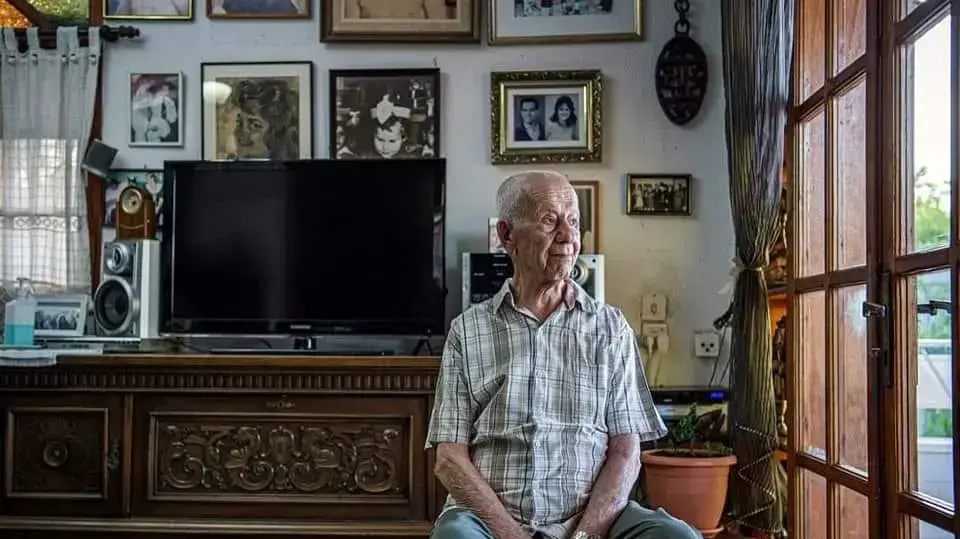
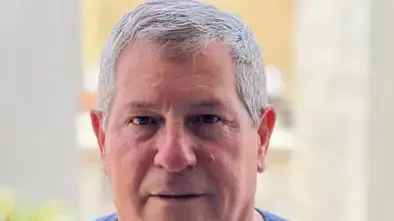

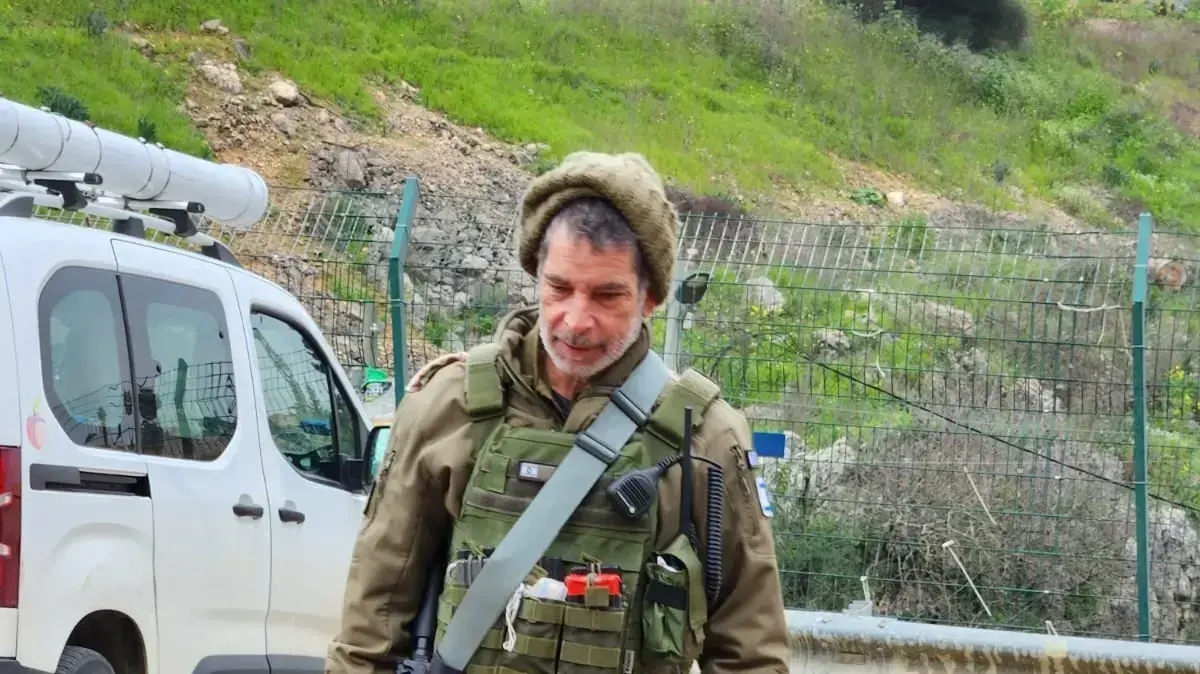

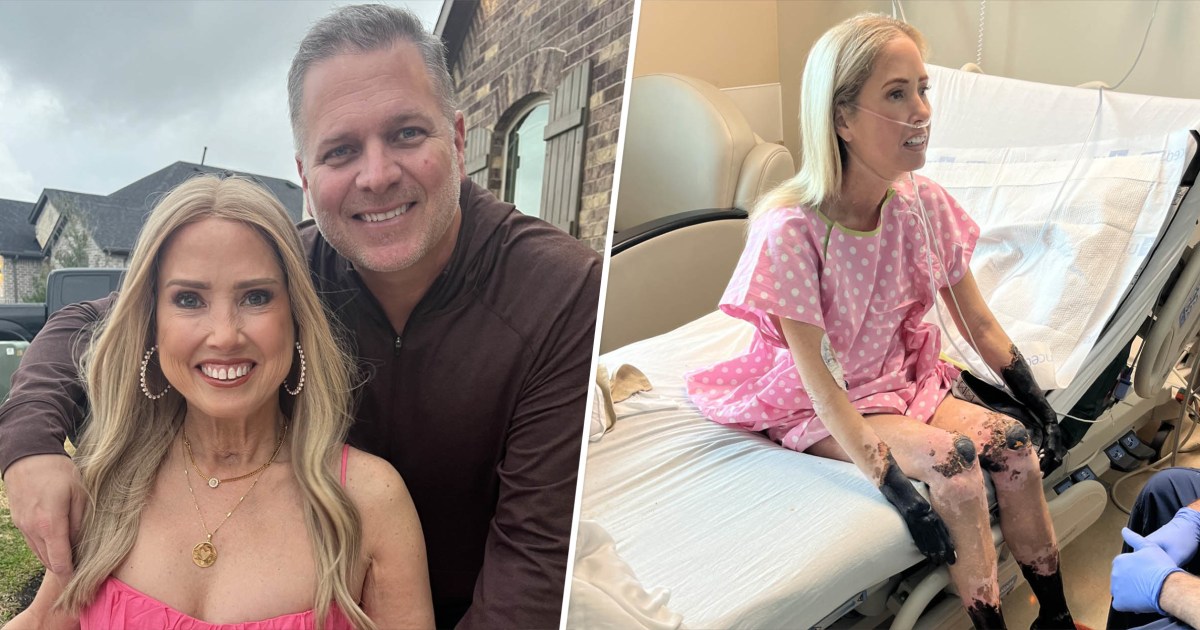
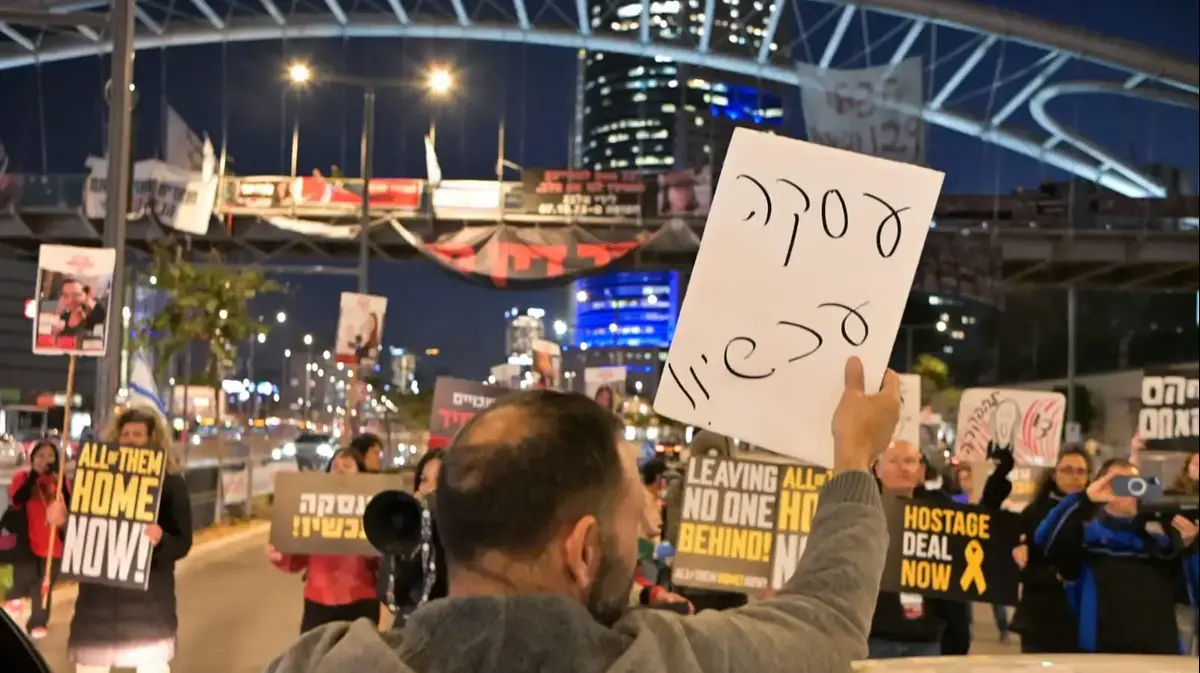
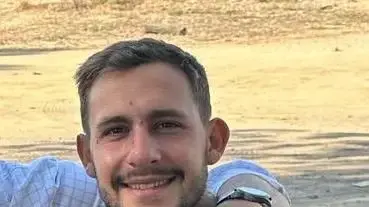
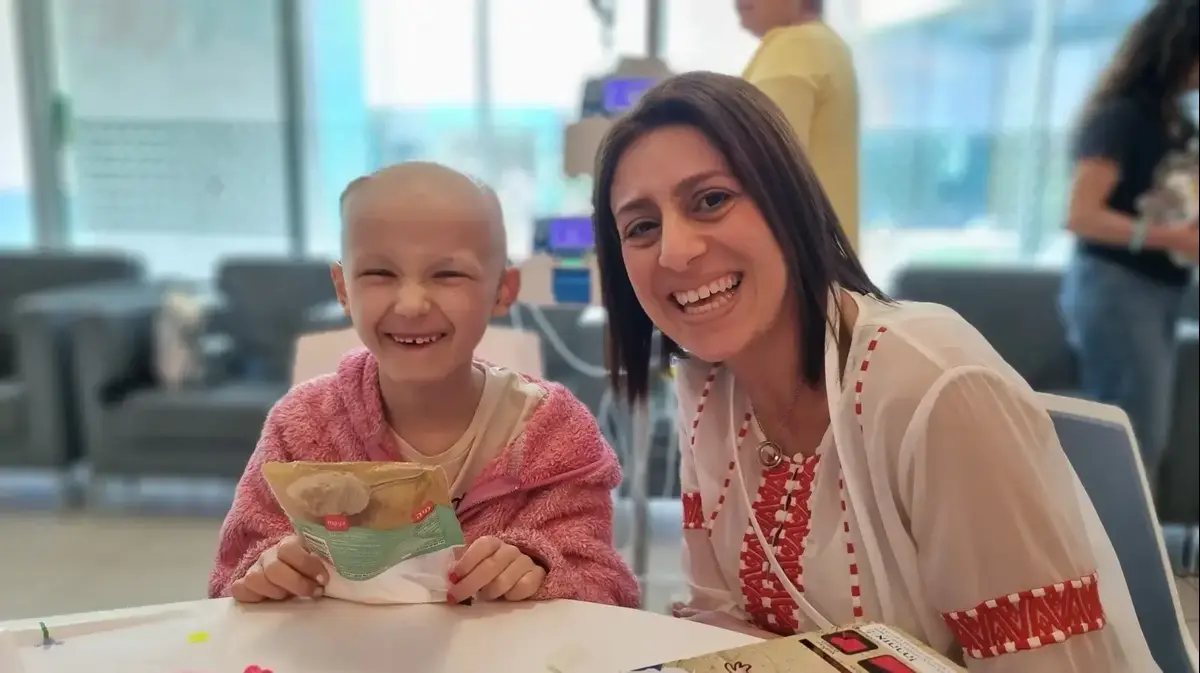
/cloudfront-eu-central-1.images.arcpublishing.com/prisa/2C5HI6YHNFHDLJSBNWHOIAS2AE.jpeg)



